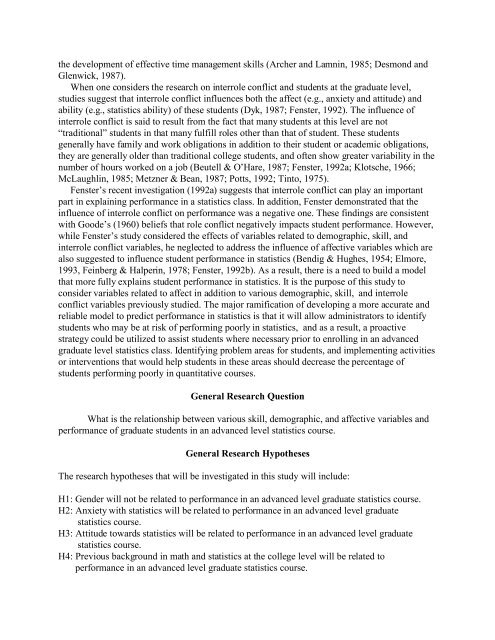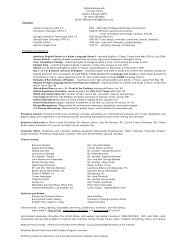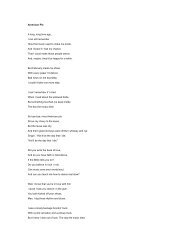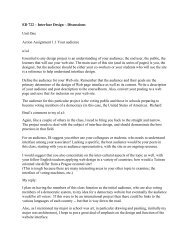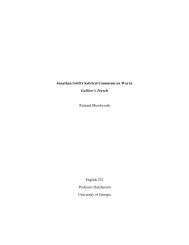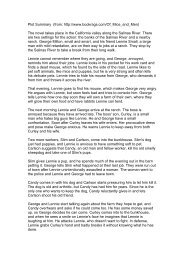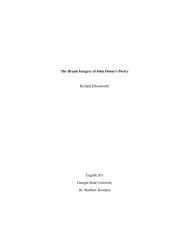Research Methodology, pdf - 2B2B.org
Research Methodology, pdf - 2B2B.org
Research Methodology, pdf - 2B2B.org
Create successful ePaper yourself
Turn your PDF publications into a flip-book with our unique Google optimized e-Paper software.
the development of effective time management skills (Archer and Lamnin, 1985; Desmond and<br />
Glenwick, 1987).<br />
When one considers the research on interrole conflict and students at the graduate level,<br />
studies suggest that interrole conflict influences both the affect (e.g., anxiety and attitude) and<br />
ability (e.g., statistics ability) of these students (Dyk, 1987; Fenster, 1992). The influence of<br />
interrole conflict is said to result from the fact that many students at this level are not<br />
“traditional” students in that many fulfill roles other than that of student. These students<br />
generally have family and work obligations in addition to their student or academic obligations,<br />
they are generally older than traditional college students, and often show greater variability in the<br />
number of hours worked on a job (Beutell & O’Hare, 1987; Fenster, 1992a; Klotsche, 1966;<br />
McLaughlin, 1985; Metzner & Bean, 1987; Potts, 1992; Tinto, 1975).<br />
Fenster’s recent investigation (1992a) suggests that interrole conflict can play an important<br />
part in explaining performance in a statistics class. In addition, Fenster demonstrated that the<br />
influence of interrole conflict on performance was a negative one. These findings are consistent<br />
with Goode’s (1960) beliefs that role conflict negatively impacts student performance. However,<br />
while Fenster’s study considered the effects of variables related to demographic, skill, and<br />
interrole conflict variables, he neglected to address the influence of affective variables which are<br />
also suggested to influence student performance in statistics (Bendig & Hughes, 1954; Elmore,<br />
1993, Feinberg & Halperin, 1978; Fenster, 1992b). As a result, there is a need to build a model<br />
that more fully explains student performance in statistics. It is the purpose of this study to<br />
consider variables related to affect in addition to various demographic, skill, and interrole<br />
conflict variables previously studied. The major ramification of developing a more accurate and<br />
reliable model to predict performance in statistics is that it will allow administrators to identify<br />
students who may be at risk of performing poorly in statistics, and as a result, a proactive<br />
strategy could be utilized to assist students where necessary prior to enrolling in an advanced<br />
graduate level statistics class. Identifying problem areas for students, and implementing activities<br />
or interventions that would help students in these areas should decrease the percentage of<br />
students performing poorly in quantitative courses.<br />
General <strong>Research</strong> Question<br />
What is the relationship between various skill, demographic, and affective variables and<br />
performance of graduate students in an advanced level statistics course.<br />
General <strong>Research</strong> Hypotheses<br />
The research hypotheses that will be investigated in this study will include:<br />
H1: Gender will not be related to performance in an advanced level graduate statistics course.<br />
H2: Anxiety with statistics will be related to performance in an advanced level graduate<br />
statistics course.<br />
H3: Attitude towards statistics will be related to performance in an advanced level graduate<br />
statistics course.<br />
H4: Previous background in math and statistics at the college level will be related to<br />
performance in an advanced level graduate statistics course.


